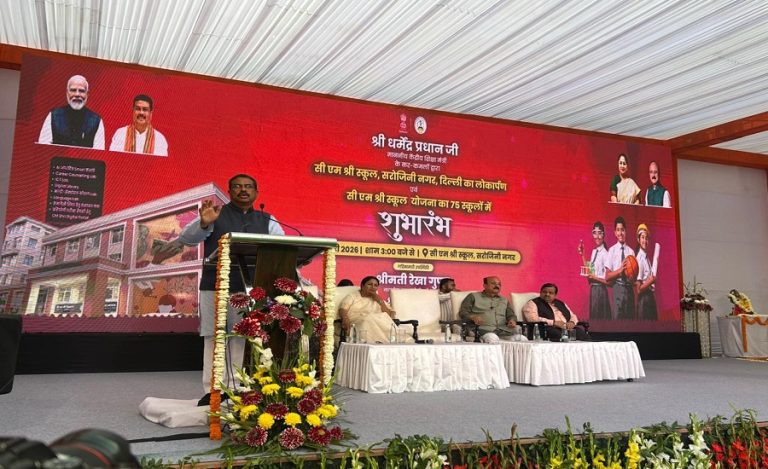New Delhi: The Supreme Court of India has finally taken decisive action against one of the nation’s fastest-growing cybercrimes.
On Friday, a bench comprising Justice Surya Kant and Justice Joymalya Bagchi initiated suo motu proceedings after a shocking complaint from a 73-year-old woman from Ambala, Haryana, who was duped of over Rs 1 crore through an elaborate “digital arrest” scam.
What makes this case particularly alarming is the brazen use of forged Supreme Court orders, complete with fake signatures of judges, seals, and judicial stamps. The Haryana Case That Shook the Apex Court
The complainants, Shashi Sachdeva and Harish Chand Sachdeva, approached Chief Justice of India BR Gavai with their harrowing ordeal.
Between September 3 and 16, 2024, the elderly couple was systematically defrauded of their life savings by criminals impersonating officials from the CBI, Intelligence Bureau, and even the judiciary itself.
The fraudsters went to shocking lengths to appear legitimate. They conducted video calls showing fake court proceedings, displayed forged Supreme Court orders via WhatsApp, and even used what appeared to be the signature of former Chief Justice Sanjiv Khanna.
Under the psychological pressure of imminent arrest and threats of legal consequences, the couple transferred Rs 1.5 crore through multiple transactions.
“Direct Assault on Judicial Dignity”: Supreme Court’s Strong Words
Justice Surya Kant’s bench pulled no punches in condemning this cybercrime wave.
“The fabrication of judicial orders bearing forged signatures of judges strikes at the very foundation of public trust in the judicial system, besides the rule of law,” the bench observed.
The court called such actions a “direct assault on the dignity of the institution” and emphasized that this grave criminal act cannot be treated as an ordinary case of cheating or cybercrime.
“We are against the fact that the fraudsters have fabricated multiple judicial orders in the name of the Supreme Court of India, including a freeze order dated 1st September, purportedly issued under the PMLA, bearing forged signatures of a judge, an officer of ED, and a court stamp also,” the order stated.
Nationwide Crisis: The Staggering Numbers
Digital arrest scams have evolved from isolated incidents to a nationwide epidemic.
According to official government data presented in Parliament, Indians lost a staggering Rs 1,935.51 crore to digital arrest scams in 2024 alone, with 1,23,672 complaints registered on the National Cyber Crime Reporting Portal.
To put this in perspective:
- In 2022, only 39,925 cases were reported with losses of Rs 91.14 crore
- By 2024, cases tripled and financial losses increased twenty-fold
- In just the first two months of 2025, 17,718 incidents involving Rs 210.21 crore were reported
The Indian Cyber Crime Coordination Centre estimates that over 92,323 cases of digital arrest scams were reported in 2024, with victims losing approximately Rs 2,140 crore between January and October.
However, experts believe these numbers represent only the tip of the iceberg. Many victims, especially senior citizens, never report these crimes due to shame or fear.
How the Scam Works: Understanding the Modus Operandi
Digital arrest is a sophisticated psychological manipulation technique where fraudsters create a fake law enforcement scenario to extort money.
The Typical Pattern
Step 1: Initial Contact: Victims receive calls from individuals posing as officials from TRAI, courier companies, or customs authorities, claiming their phone number or Aadhaar is linked to illegal activities.
Step 2: Escalation: The call is transferred to “senior officers” impersonating CBI, ED, or police officials who make serious accusations like money laundering, drug trafficking, or involvement in criminal networks.
Step 3: Psychological Trap: Victims are shown forged FIRs, arrest warrants, and court orders through video calls. Some scammers even create fake courtroom settings with individuals wearing police uniforms.
Step 4: Digital Confinement: Victims are forced to remain on continuous video calls for hours or days, isolated from family and friends. They’re told any disconnection will result in immediate physical arrest.
Step 5: Extortion: To “clear their name” or avoid arrest, victims are coerced into transferring large sums to specified bank accounts, often described as “security deposits” or “investigation fees.”
High-Profile Victims: No One is Safe
The sophistication of these scams has trapped people across all demographics.
Notable Cases:
S.P. Oswal (age 82): Chairman of Vardhman Group, lost Rs 7 crore in August 2024 after being placed under “digital arrest” for two days with fake Supreme Court proceedings
Dr. Ruchika Tandon: Associate Professor at SGPGIMS Lucknow, transferred Rs 2.81 crore after scammers accused her of money laundering and human trafficking
Hemantika Vahi: A 72-year-old lawyer from Noida, lost Rs 3.29 crore despite her legal background
Retired Air Force Veteran: Lost Rs 1.59 crore to fraudsters posing as investigating agencies
Supreme Court’s Directions: Coordinated Action Required
The apex court has initiated a suo motu writ petition titled “In Re: Victims of Digital Arrest Related to Forged Documents.”
Key Directions:
1. Notice issued to Union of India through Secretary, Ministry of Home Affairs
2. CBI Director called to respond on investigation mechanisms
3. Haryana government and SP Cyber Crime, Ambala, directed to file status report
4. Attorney General of India requested to assist in the matter
The bench emphasized that coordinated efforts between central and state police are essential to unearth the full extent of criminal enterprises involving document forgery and extortion of innocent citizens.
“Ordinarily, we would have directed the state police to expedite the investigation. However, the forgery of Supreme Court orders elevates this far beyond routine cybercrime,” the court observed.
Government’s Counter-Measures: Fighting Back
The government has launched multiple initiatives to combat this menace.
Actions Taken
As of December 2024: Over 1,700 Skype IDs and 59,000 WhatsApp accounts blocked
SIM Cards Blocked: More than 669,000 fraudulent SIM cards deactivated
IMEI Blocking: 132,000 devices blocked from networks.
Financial Recovery: Citizen Financial Cyber Fraud Reporting System helped save Rs 3,431 crore from fraudulent attempts
International Coordination: System developed to block spoofed international calls appearing as Indian numbers
The Indian Cyber Crime Coordination Centre (I4C) has been coordinating nationwide efforts, with the National Cybercrime Reporting Portal (NCRP) serving as the primary complaint mechanism.
PM Modi’s Warning: Stop, Think, Act
In his Mann Ki Baat address in October 2024, Prime Minister Narendra Modi specifically warned citizens about digital arrest scams.
He emphasized a simple three-step protocol:
1. STOP: Don’t panic when receiving threatening calls
2. THINK: Remember that no genuine law enforcement agency conducts arrests over phone or video calls
3. ACT: Verify information independently and report suspicious calls immediately
The PM stressed that many scam operations are based in Myanmar, Laos, and Cambodia, with 46% of reported cyber frauds in early 2023 linked to these Southeast Asian locations.
Red Flags: How to Identify Digital Arrest Scams
Warning Signs:
- Unsolicited calls claiming immediate legal action
- Accusations of serious crimes without prior notice
- Pressure to stay on continuous video calls
- Demands for immediate money transfer
- Threats that police are en route to arrest you
- Requests for Aadhaar, PAN, or bank details over calls
- Instructions not to contact family, friends, or lawyers
- Claims of “digital arrest” or “digital custody”
Remember: There is NO legal provision for “digital arrest” in Indian law. It’s a completely fabricated term used by criminals.
Legal Framework: Laws Against Digital Arrest Scams
While “digital arrest” is not specifically defined as an offense, several provisions apply:
Under Bharatiya Nyaya Sanhita (BNS), 2023:
- Cheating and fraud
- Forgery of documents
- Impersonation of public servants
- Criminal intimidation
- Extortion
Under Information Technology Act, 2000:
- Identity theft
- Cheating by personation using computer resources
- Forgery of electronic records
Expert Insights: The Psychology Behind the Scam
Psychologists explain that digital arrest scams exploit deep-seated human vulnerabilities.
Key Psychological Factors:
Authority Bias: Indians have high trust in government institutions (79% according to 2025 surveys), which scammers ruthlessly exploit
Fear Response: Accusations of serious crimes trigger fight-or-flight responses, clouding judgment.
Moral Emotions: Scammers induce guilt and shame, making victims desperate to prove innocence.
Isolation Tactics: Keeping victims on continuous calls prevents them from seeking advice or verification.
Social Engineering: Using deepfakes, forged documents, and fake uniforms creates an overwhelming sense of authenticity
How to Protect Yourself and Your Family
Immediate Actions:
1. Never trust unsolicited calls claiming to be from law enforcement
2. Verify independently
3. Never transfer money based on phone or video call instructions
4. Don’t share personal details like Aadhaar, PAN, or bank information
5. Disconnect immediately, if pressured to stay on continuous calls
6. Consult family or lawyers before taking any action
7. Remember that no genuine officer will demand payment over calls
If You’re Targeted:
– Call 1930 immediately (National Cyber Crime Helpline)
– Report at cybercrime.gov.in
– Inform your bank to freeze suspicious transactions
– File FIR at nearest cybercrime police station
– Act within 15-20 minutes for best chance of fund recovery
The International Dimension: Cross-Border Operations
Investigations reveal that many digital arrest scams operate from Southeast Asian countries. Countries like Myanmar, Cambodia, Laos, and Thailand have emerged as cybercrime hubs where criminal syndicates operate sophisticated call centers.
Some victims have been trafficked to these locations and forced to participate in scamming operations. In January 2025, Russian national Anatoly Mironov was arrested in India for facilitating digital arrest scams under a Chinese syndicate.
What This Supreme Court Case Means for the Future
The apex court’s intervention is expected to trigger systemic changes:
1. National Verification Mechanism: Creation of QR-coded or digitally signed judicial documents
2. Enhanced Coordination: Better information sharing between central and state agencies
3. Stronger Legislation: Specific provisions for digital impersonation crimes
4. Public Awareness Campaigns: Large-scale education initiatives
5. International Cooperation: Treaties for cross-border cybercrime investigation
Remember: Digital arrest doesn’t exist in law. If someone claims to put you under “digital arrest,” it’s a scam. Disconnect immediately and report.




























